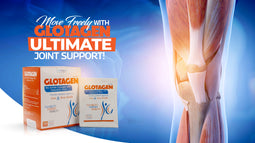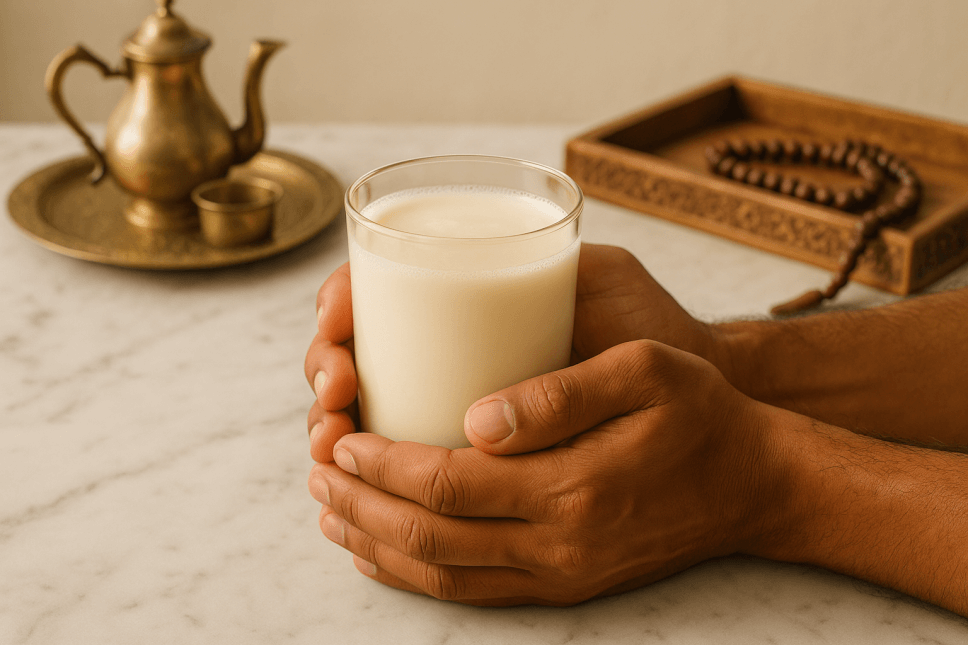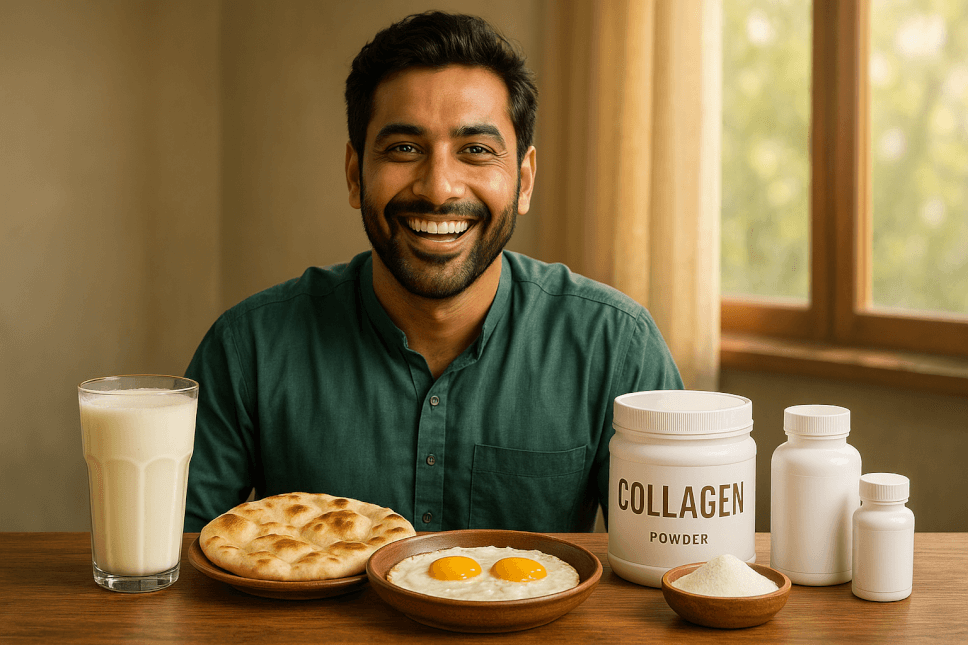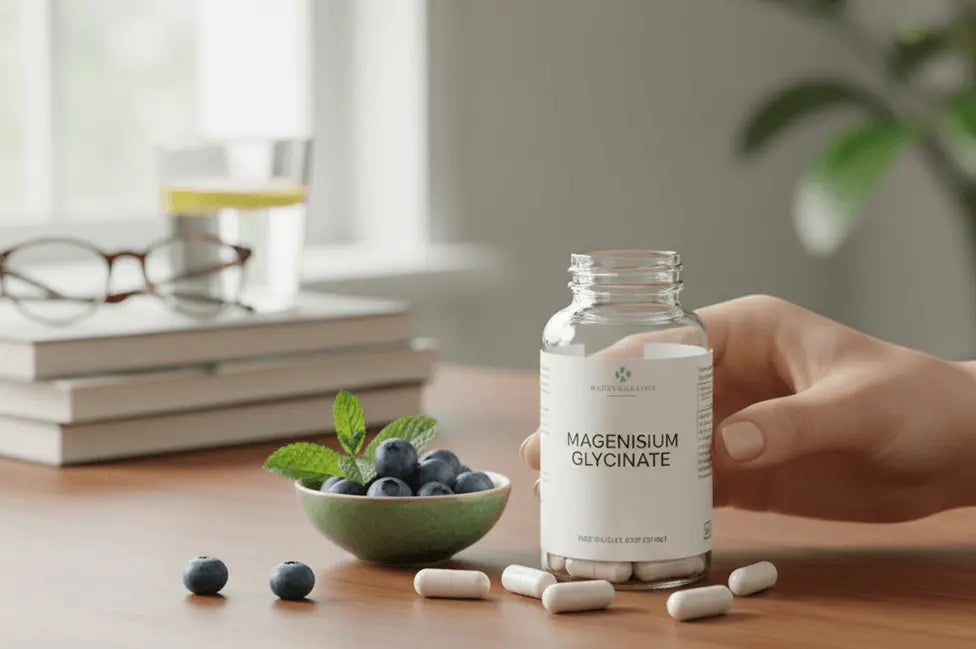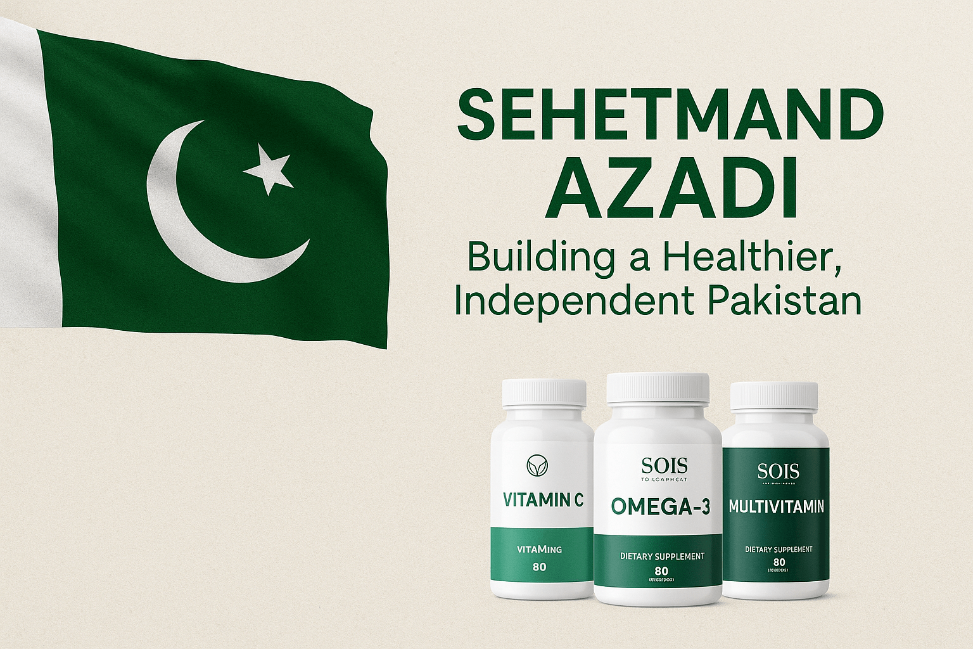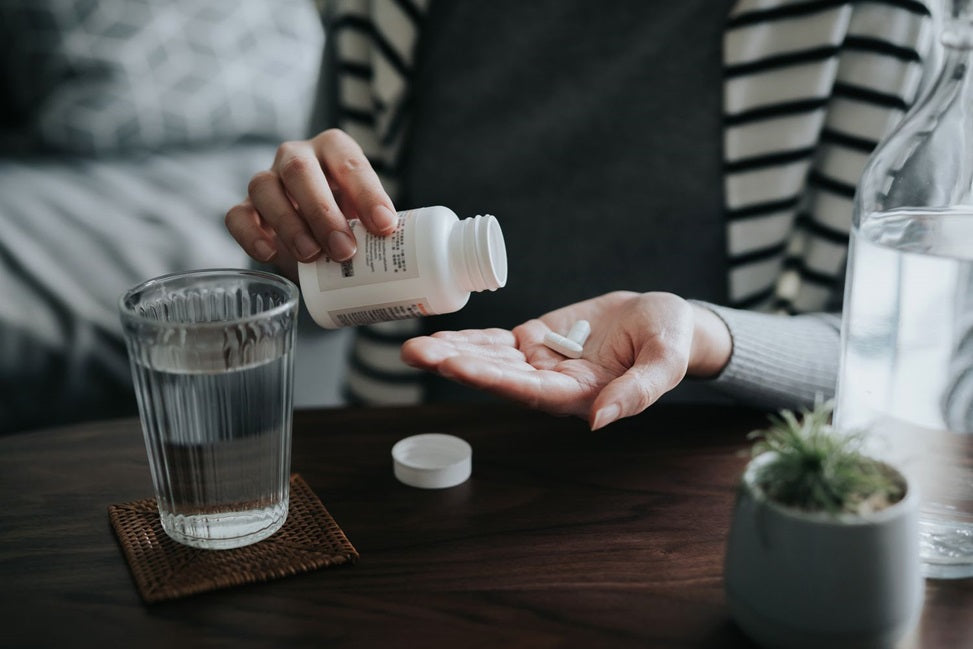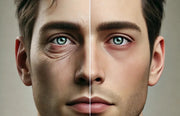
How Collagen Production Declines with Age (and How to Stop It)
Introduction: Why Collagen Matters More Than Ever After 35
If you're noticing more wrinkles, joint stiffness, or dull skin with each passing year, you're not alone. After age 30, collagen — the most abundant protein in the body — starts declining by about 1% every year. This slow fade impacts everything from your skin’s firmness to your joint mobility and bone strength. But the good news? You can slow — and even reverse — collagen loss with the right lifestyle changes and supplements. In this blog, we break down the science of collagen decline and how to stop it effectively.
What Is Collagen and Why Is It Crucial?
Collagen is a structural protein that acts like the glue holding your body together. It supports your skin, joints, bones, muscles, tendons, and even gut health.
There are 5 key types of collagen:
-
Type I: Found in skin, bones, tendons (most abundant)
-
Type II: Found in cartilage and joints
-
Type III: Found in skin, lungs, and blood vessels
-
Type IV: Found in basement membranes
-
Type V: Found in hair and placenta
As we age, natural production slows — leading to fine lines, sagging skin, joint pain, and brittle hair or nails.
Why Does Collagen Decline With Age?
Biological and Environmental Factors
-
Age: After 30, collagen production drops steadily.
-
Hormonal changes: Estrogen plays a major role in collagen synthesis. Its decline during menopause accelerates skin aging.
-
Sun exposure: UV rays break down collagen fibers.
-
Smoking: Nicotine reduces collagen and elastin production.
-
High sugar intake: Sugar leads to glycation, which weakens collagen structure.
-
Stress & poor sleep: These increase cortisol, a hormone that impairs collagen repair.
Visible Signs of Collagen Loss
How You Can Tell Your Collagen Is Declining
-
Wrinkles and sagging skin
-
Joint stiffness or pain, especially in knees and shoulders
-
Thinning hair or hair fall
-
Brittle nails
-
Weakness in muscles
-
Reduced flexibility and slower recovery after exercise
Real-life example: A 45-year-old woman might notice fine lines deepening, increased joint discomfort, and slower wound healing. These are not just signs of aging — they're signs of collagen loss.
How to Stop Collagen Loss Naturally
Smart Strategies to Preserve and Rebuild Collagen
-
Eat collagen-rich foods:
-
Bone broth
-
Chicken skin
-
Fish skin
-
Eggs (especially the membrane)
-
Leafy greens and berries (rich in Vitamin C)
-
-
Take collagen supplements:
-
Hydrolyzed collagen peptides are easily absorbed by the body.
-
Collagen supplement (Glotagen), a halal-certified bovine collagen supplement, offers bioavailable Type I & III collagen in convenient sachets.
-
For complete support, the Collagen Wellness Bundle (Glotagen) includes both collagen and joint-support essentials.
-
-
Use Paingel Ointment: Paingel can complement collagen supplementation for localized joint discomfort relief.
-
Protect against UV: Always wear SPF — UV rays accelerate collagen breakdown.
-
Sleep and hydrate well: Collagen regenerates while you sleep and requires water to maintain structure.
-
Exercise: Weight-bearing and resistance exercises stimulate collagen formation in muscles and bones.
-
Avoid sugar and smoking: Both accelerate collagen degradation.
Best Collagen Supplements for Women Over 40
Women entering perimenopause or menopause experience a sharp decline in estrogen, which directly affects collagen levels. That’s why collagen supplementation becomes essential.
Why Glotagen is Trusted by Health-Conscious Women:
-
Bovine-based, halal-certified
-
Comes in easy-to-use collagen sachets
-
Fortified with Vitamin C for better absorption
-
No fillers or harmful additives
Explore the full range of joint support supplements at SOIS Life Sciences.
FAQs
What does collagen do in the body?
Collagen provides structure, strength, and elasticity to your skin, bones, tendons, and cartilage. It also supports gut and heart health.
Which foods are rich in collagen?
Bone broth, chicken skin, fish skin, egg whites, and collagen-rich meats. Vitamin C-rich fruits like oranges and kiwis boost collagen synthesis.
Is collagen made from Vitamin C?
Not directly, but Vitamin C is essential in the process of collagen formation. Without it, your body can’t produce or maintain collagen effectively.
Is it good to take collagen every day?
Yes. Daily supplementation ensures your body has a steady supply of amino acids to rebuild and repair collagen structures.
Internal Reads You Shouldn't Miss:
Conclusion: Don’t Let Collagen Slip Away with Age
The effects of aging aren't inevitable — they’re manageable. By understanding collagen's role and implementing proven strategies to preserve and replenish it, you can restore your skin’s glow, strengthen your joints, and feel vibrant at any age.
🌟 Start today with Collagen supplement (Glotagen) — the scientifically backed, halal-certified collagen formula trusted by women across Pakistan.
References:
-
Shuster, S. (1975). The influence of age and sex on skin thickness, skin collagen and density. British Journal of Dermatology.
https://onlinelibrary.wiley.com/doi/abs/10.1111/j.1365-2133.1975.tb05113.x -
Proksch, E., et al. (2014). Oral supplementation of specific collagen peptides has beneficial effects on human skin physiology: a double-blind, placebo-controlled study. Skin Pharmacology and Physiology.
https://www.karger.com/Article/Abstract/355581 -
Zague, V. (2008). A new view concerning the effects of collagen hydrolysate intake on skin properties. Archives of Dermatological Research.
https://link.springer.com/article/10.1007/s00403-008-0887-1
